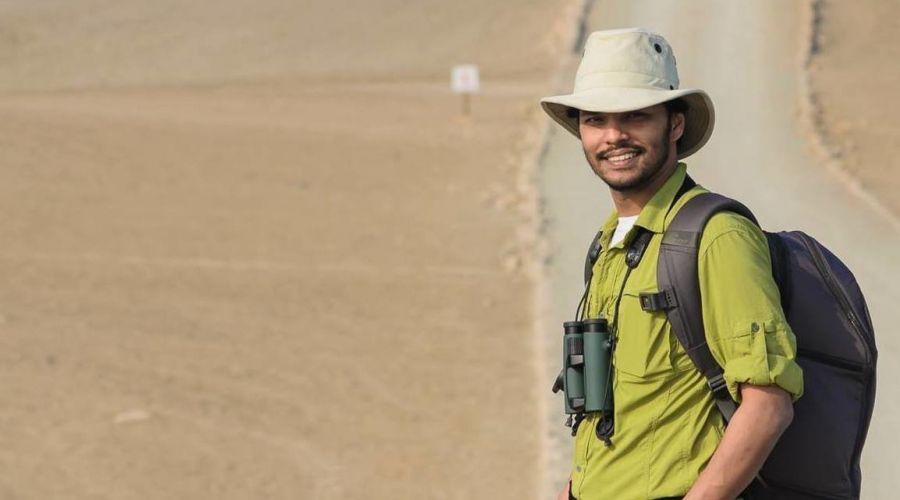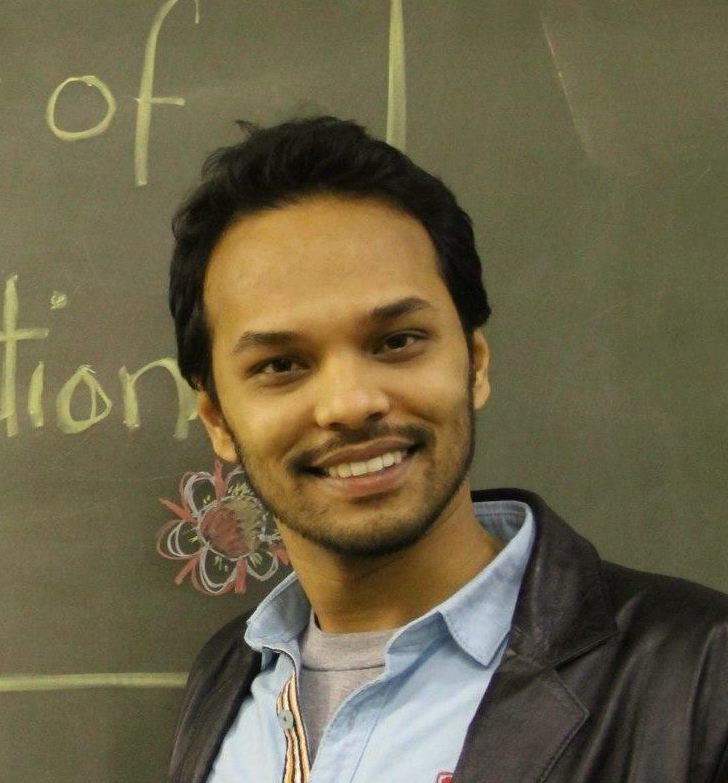
Scholar-Elect Sayam Chowdhury is studying the shorebirds of Bangladesh’s coastal areas and the impact of climate change on their conservation.
The coastal areas of Bangladesh are very dynamic. Trying to identify a site that needs protection is difficult because it changes every year and climate change is making it much harder.
Sayam Chowdhury
Sayam Chowdhury was fascinated by birds from an early age and began studying them as a child, noting their different characteristics and behaviour. That early interest has developed over the years into a passion for bird conservation which has driven his desire to do a PhD in Zoology at the University of Cambridge, which he begins this autumn. He will study the shorebirds of Bangladesh’s coastal areas.
The intertidal mudflats of Asia are key habitats, supporting more than 50 million migratory birds, including 33 globally threatened species. Sayam wants to understand the habitat requirements of coastal birds and the multiple factors driving their population decline, such as intense human pressure and climate change. He says: “My work aims to identify the most effective long-term conservation measures for these species, ecosystems and the communities that depend on them.”
Born in Barishal in Bangladesh, Sayam grew up surrounded by wildlife. He says there were more trees than people where he lives. He soon became fascinated by caged birds that he could observe in close proximity. The birds were mainly budgerigars and love birds, and their diversity and colours captured his imagination. He soon understood, however, the difficulties birds raised in captivity faced, so, from the age of 12, he started focusing more on free-ranging pigeons which had the freedom to fly around. He bred and studied them, writing a diary where he recorded his observations about their behaviour and productivity. He became interested in birdwatching and from the age of 15 he would collect newspaper articles, meet up and share notes with other bird watchers. There were not many in Bangladesh at the time.
Sayam says he was not a particularly studious child, but when he finished school he knew he wanted to do something related to birds. So he applied for a degree in environmental science. Having moved to Dhaka the year before he started his four-year undergraduate degree at North South University, he found classes such as environmental ethics, research methodology and forest management particularly interesting. As part of the degree he had to do a thesis involving field research. “I was looking for a species that I could find out something new about and contribute to its conservation,” he says.
In 2009, when he started his thesis, there was very little information in Bangladesh about a highly endangered species called the spoon-billed sandpiper. Sayam applied for and won a small grant from the Explorers Club in the US. Many people doubted he would be able to find the bird, but between 2009 and 2010 Sayam travelled to many coastal regions and found sandpipers in several places, re-establishing that Bangladesh is one of the main sites for the bird.
Conservation work
That research marked a turning point for Sayam. He got in touch with a conservation task force and raised money through international organisations such as the Royal Society for the Protection of Birds in the UK to continue his research, mainly on bird species under threat. The research raised his profile among the international community and he published several papers related to it. He says that in Bangladesh there were very few conservation projects until recently which was why most of the funding had to come from abroad.
In 2014, through his contacts with the UK and because of the University of Cambridge’s reputation for bird research and conservation generally, Sayam applied to do an MPhil in Conservation Leadership for which he was awarded a Chevening Scholarship. The course included a placement in Kazakhstan to study the threatened saiga antelope.
After the master’s, Sayam returned to his conservation science work in Bangladesh, initiated several projects and worked with different organisations within and outside Bangladesh, mainly on bird conservation. He says he was always interested in looking at conservation issues from a scientific perspective.
His PhD, which will be supervised by Professor Andrew Balmford and Professor Rhys Green, will build on questions that have been pertinent to his research for some time and which he has not had the institutional support and guidelines to study up to now. He is also aware that a PhD from Cambridge will open more doors for him when it comes to changing policy in Bangladesh and that it will help ensure his research is rigorously evidence-based.
Sayam will study bird ecology, tagging shorebirds to learn about their movement patterns and how they use the coastal areas, what resources they need as well as threats from coastal erosion and rising sea levels. He will also do modelling of sites which should be prioritised for conservation.
He says: “The coastal areas of Bangladesh are very dynamic. Trying to identify a site that needs protection is difficult because it changes every year and climate change is making it much harder. It is estimated that between 25 and 40 per cent of coastal areas will be under water by 2050.” In addition to studying the population size and factors influencing shorebird activity in the Bay of Bengal, the central questions of his PhD include what impact human activities along Bangladesh’s coast have on bird life, how sea level rise and coastal development projects affect bird populations and whether these effects can be mitigated and how sites should be prioritised for conservation.
Sayam adds: “At a time when there will be a squeeze on land generally, we need to know this so we can make useful recommendations to the government and help them prepare and find sensible solutions.”

Sayam Chowdhury
- Alumni
- Bangladesh
- 2020 PhD Zoology
- Selwyn College
Growing up in a rural town in the deltaic plains of Bangladesh, I watched the natural environment vanishing in front of my eyes to meet the demands of a growing population and natural disasters. Responding to the growing need for conservation and my passion for wildlife, I have been working in research, conservation and behavioral ecology of globally threatened species in Asia for the past 12 years, focusing on threatened coastal and riverine birds. An undergraduate degree in Environmental Science and MPhil degree from the University of Cambridge have complimented my career, helping me to further understand the complex conservation problems that migratory birds face and to find science-based solutions through rigorous research. The intertidal mudflats of Asia are key habitats, supporting more than 50 million migratory birds, including 33 globally threatened species. My PhD will focus on understanding the habitat requirements of these shorebirds in the coastal areas of Bangladesh and the multiple factors driving their population decline such as intense human pressure and climate change. My work aims to identify the most effective long-term conservation measures for these species, ecosystems and the communities that depend on them.
Previous Education
University of Cambridge Conservation Leadership 2018
North South University, Dhaka Environmental Science 2010












